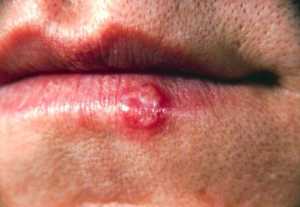Alzheimer's - Dementia, Author Interviews, Herpes Viruses / 20.07.2018
Could Treatment for Herpes Virus Reduce Risk of Alzheimer’s Disease?
MedicalResearch.com Interview with:
Prof Ruth Itzhaki
Emeritus Professor
Division of Neuroscience & Experimental Psychology
The University of Manchester
MedicalResearch.com: What is the background for this study?
Response: The background arises from the unexpected discovery, made by my lab almost 30 years ago, that the DNA of the common virus, herpes simplex virus type 1 (HSV1), known as the "cold sore" virus, was present in a high proportion of autopsy brains from elderly humans. Subsequently, we found that HSV1, when in brain of people who have a specific genetic factor, APOE-e4, confers a strong risk of developing Alzheimer's disease. We found also a parallelism with cold sores in that APOE-e4 is a risk for the sores, which occur in about 25-40% of people infected with HSV1.
We then looked for links between the effects of HSV1 infection of cells in culture and AD, and found some major associations between virus and disease.
Firstly, HSV1 causes an increase in the formation of a small protein called beta amyloid, which is the main component of the abnormal "plaques" seen in Alzheimer's Disease brains.
Secondly, we discovered that in AD brains, the viral DNA is located precisely within amyloid plaques, which suggests that the virus is responsible for the formation of these abnormal structures. Thirdly, we confirmed the finding of another lab that HSV1 causes the increased formation of an abnormal form of the protein known as tau, which is the main component of the other characteristic abnormality of Alzheimer's Disease brains - "neurofibrillary tangles".
All these discoveries suggested that the damage caused by HSV1 leads eventually to the development of AD.
Lastly, we showed that treating HSV1-infected cells in culture greatly reduces the formation of beta amyloid and abnormal tau. This suggests that antiviral agents might be used for treating Alzheimer's Disease patients.
(more…)

